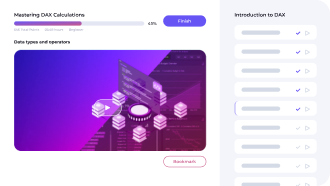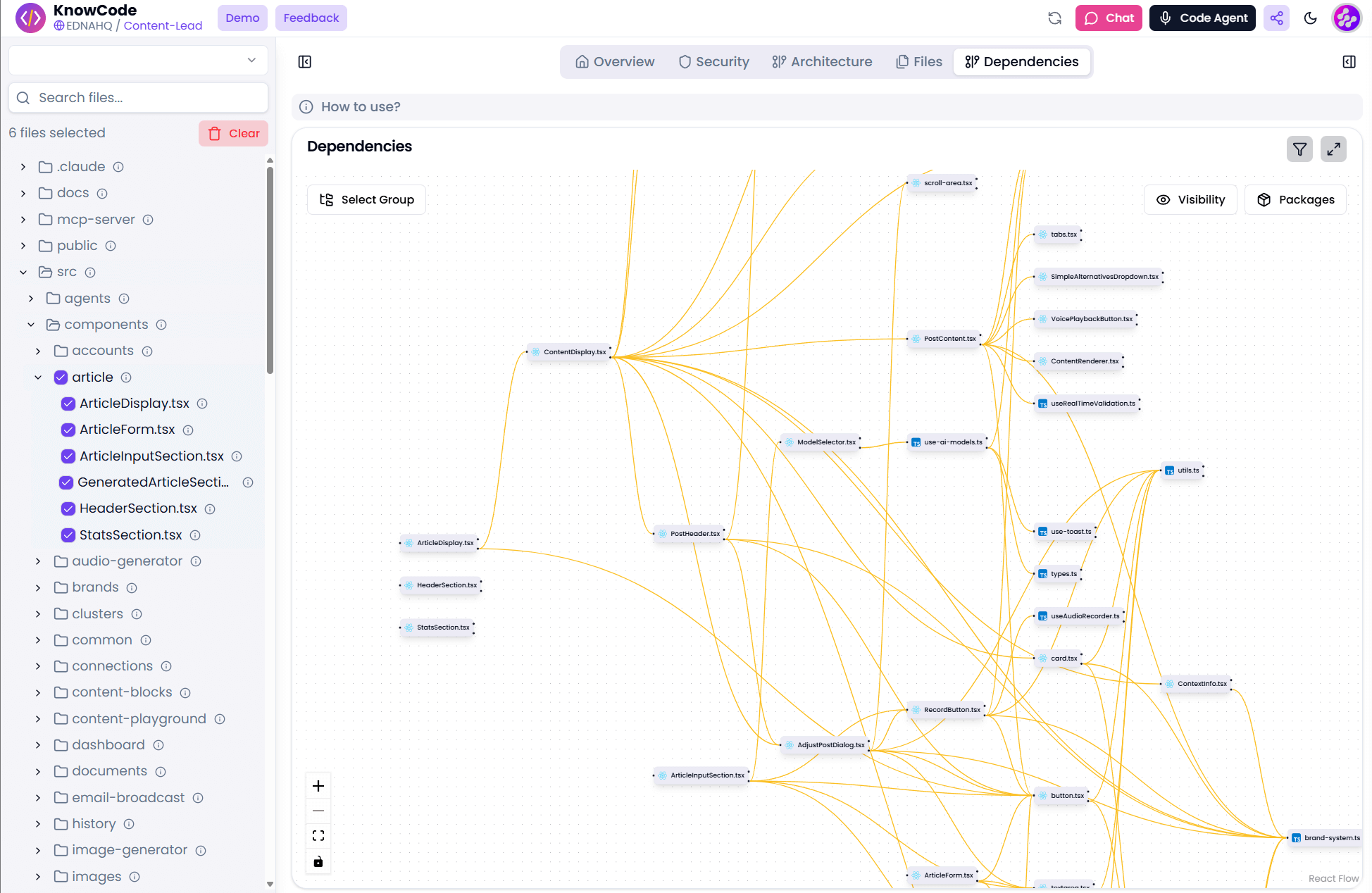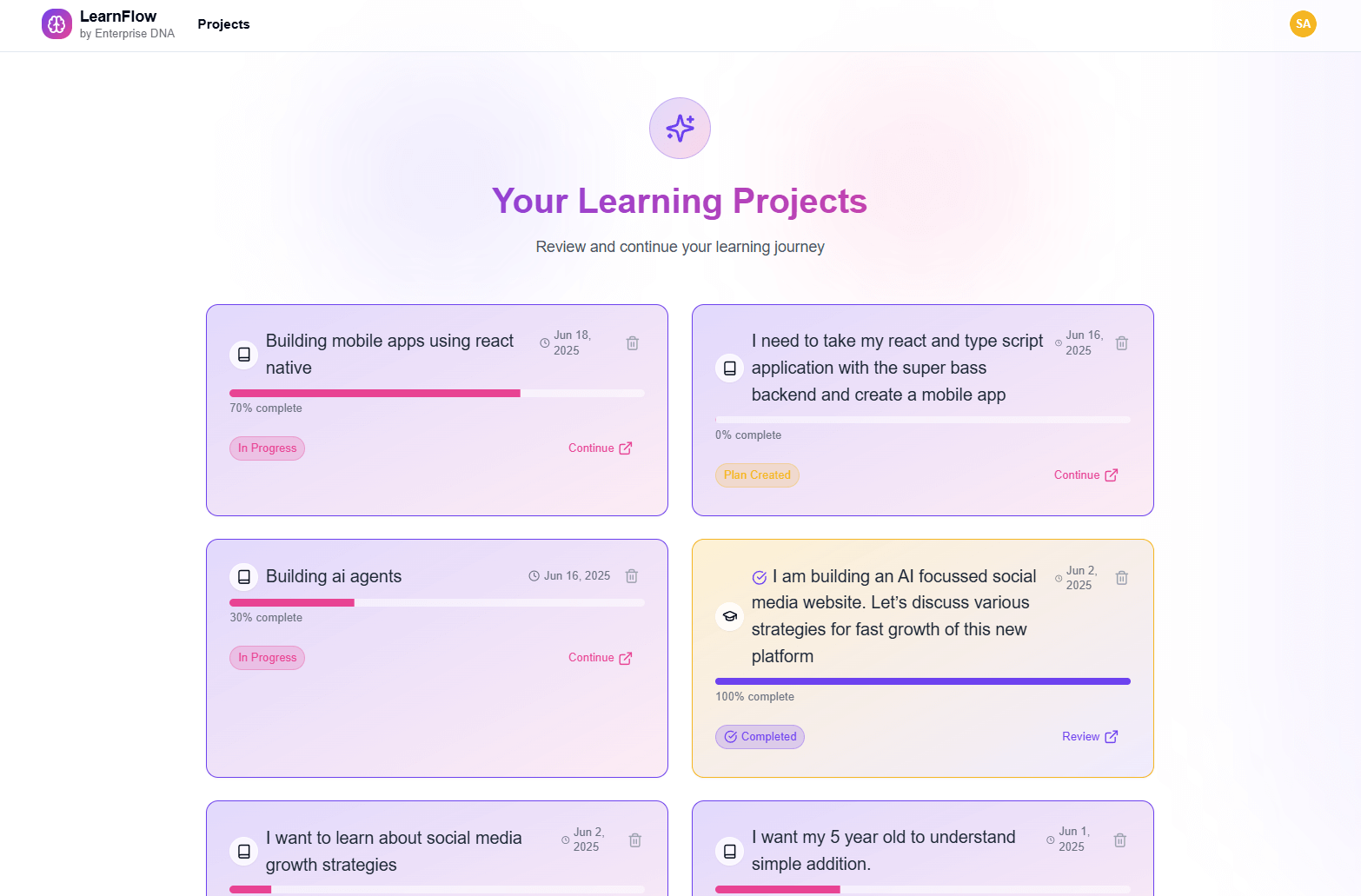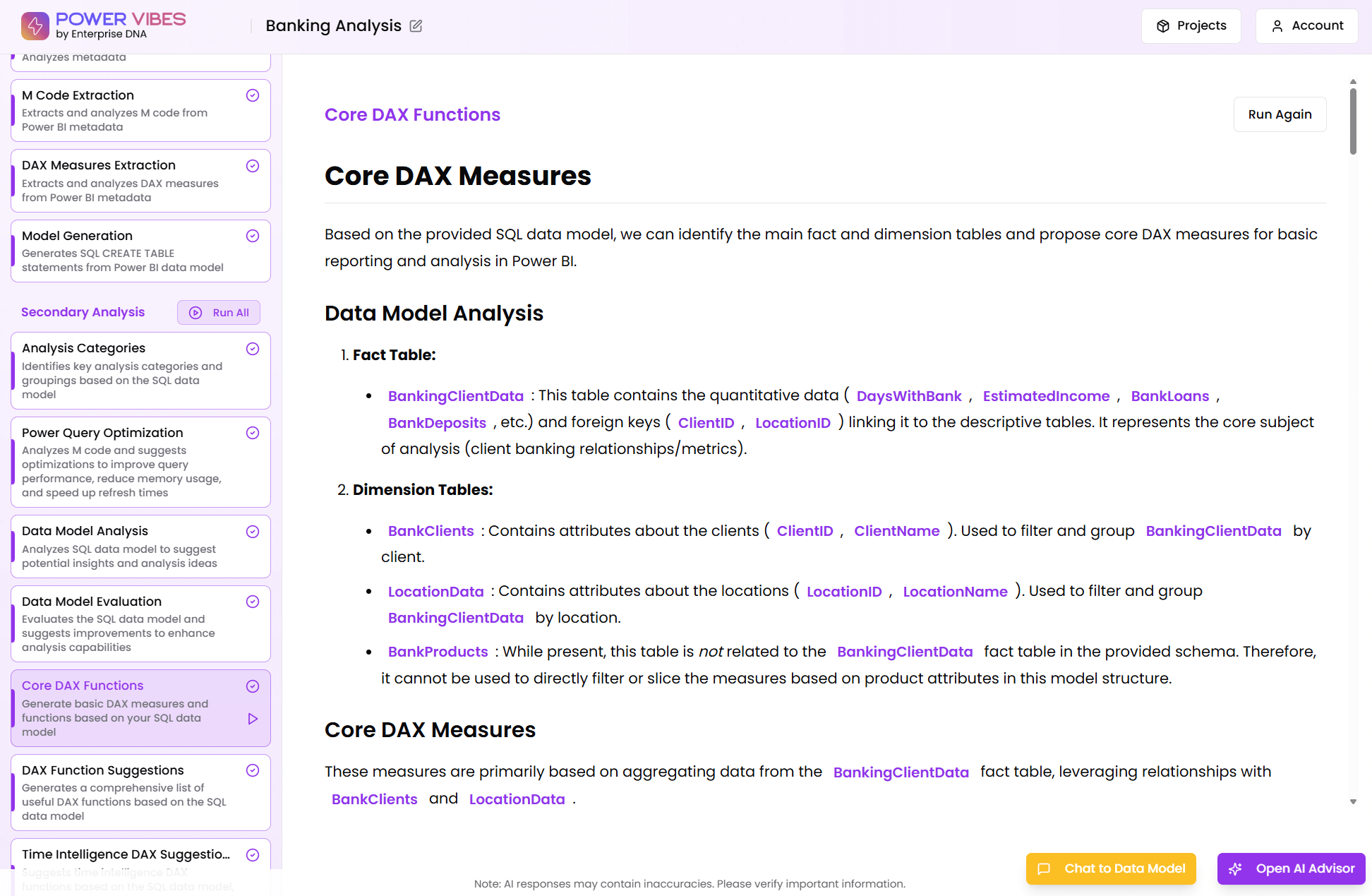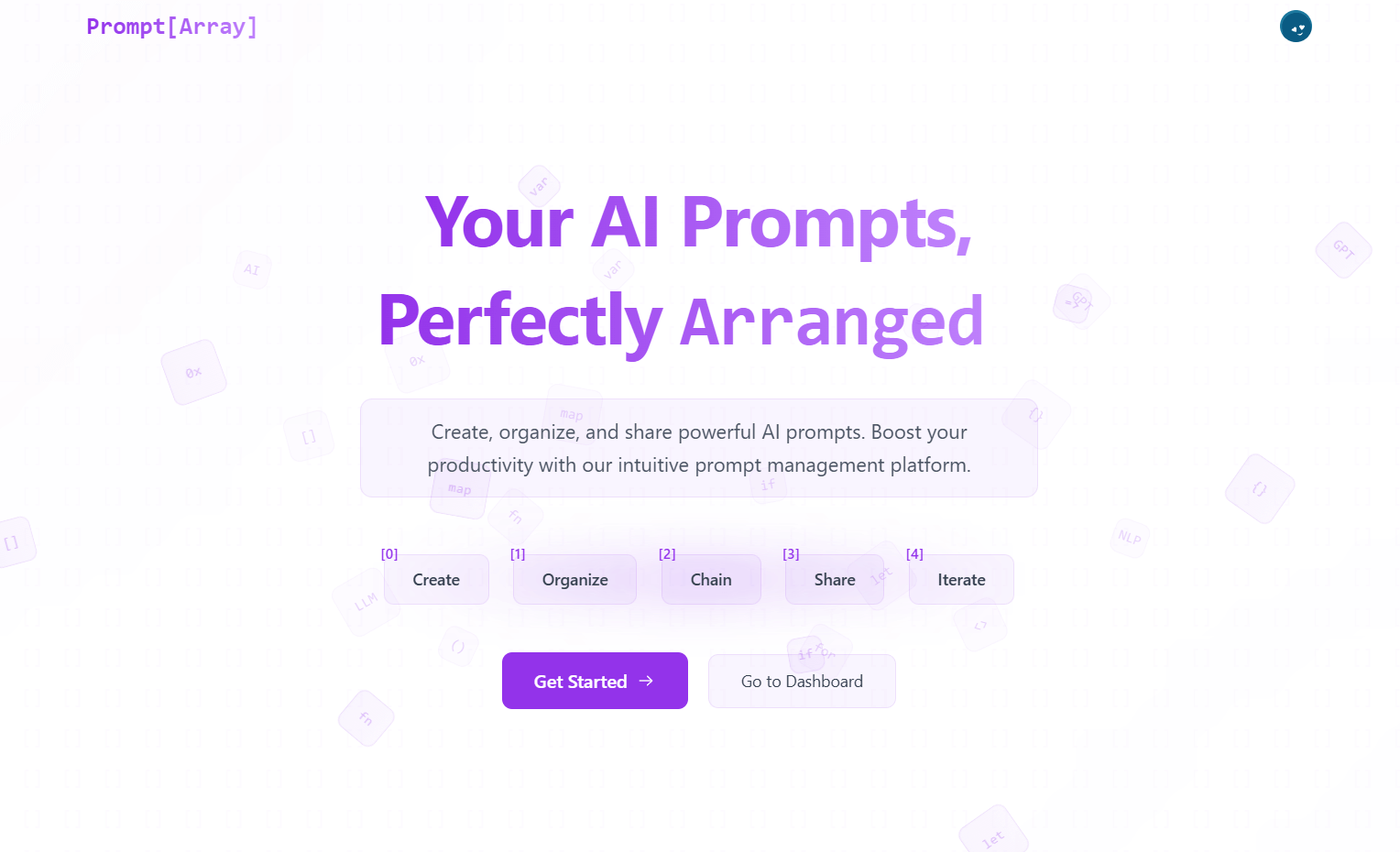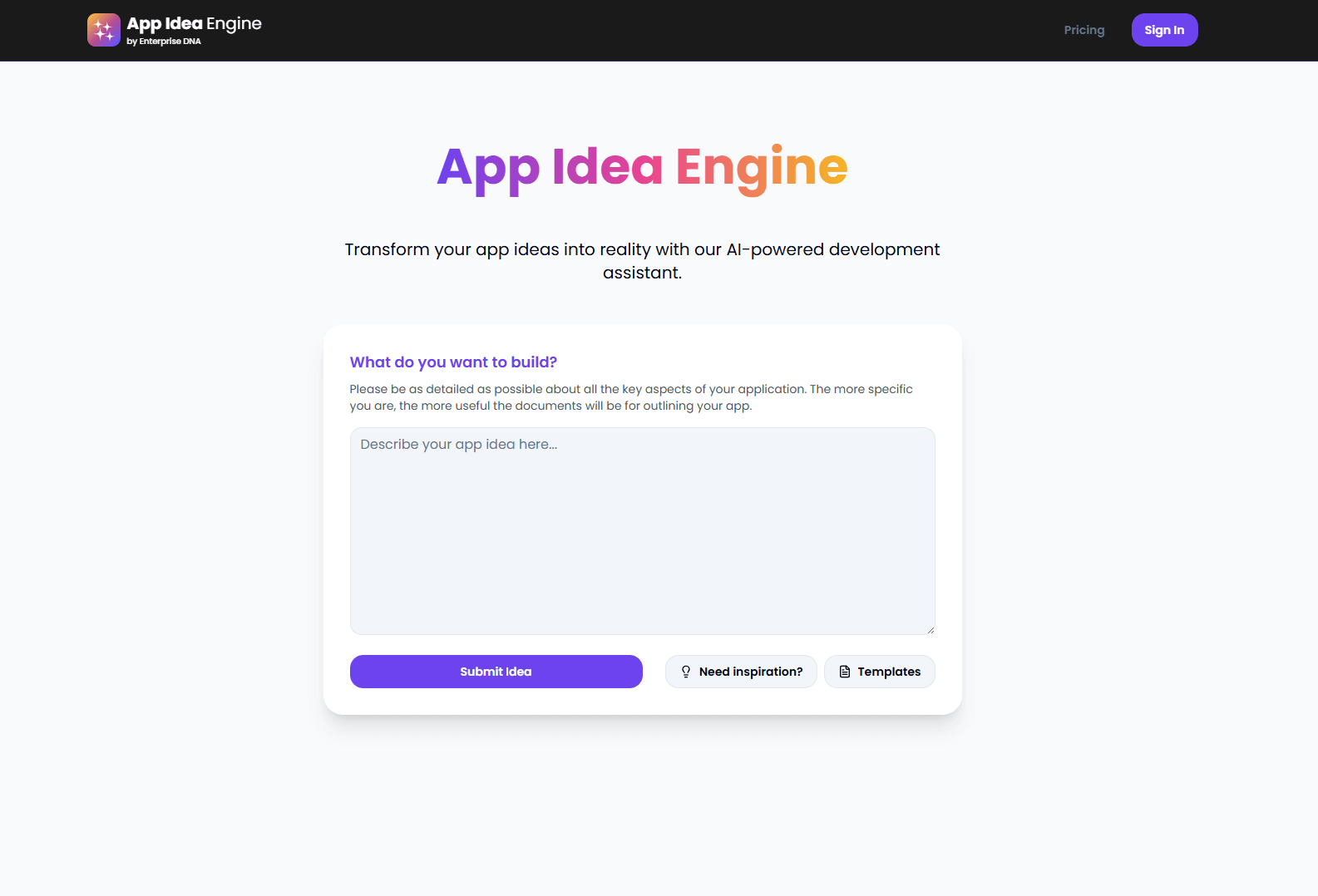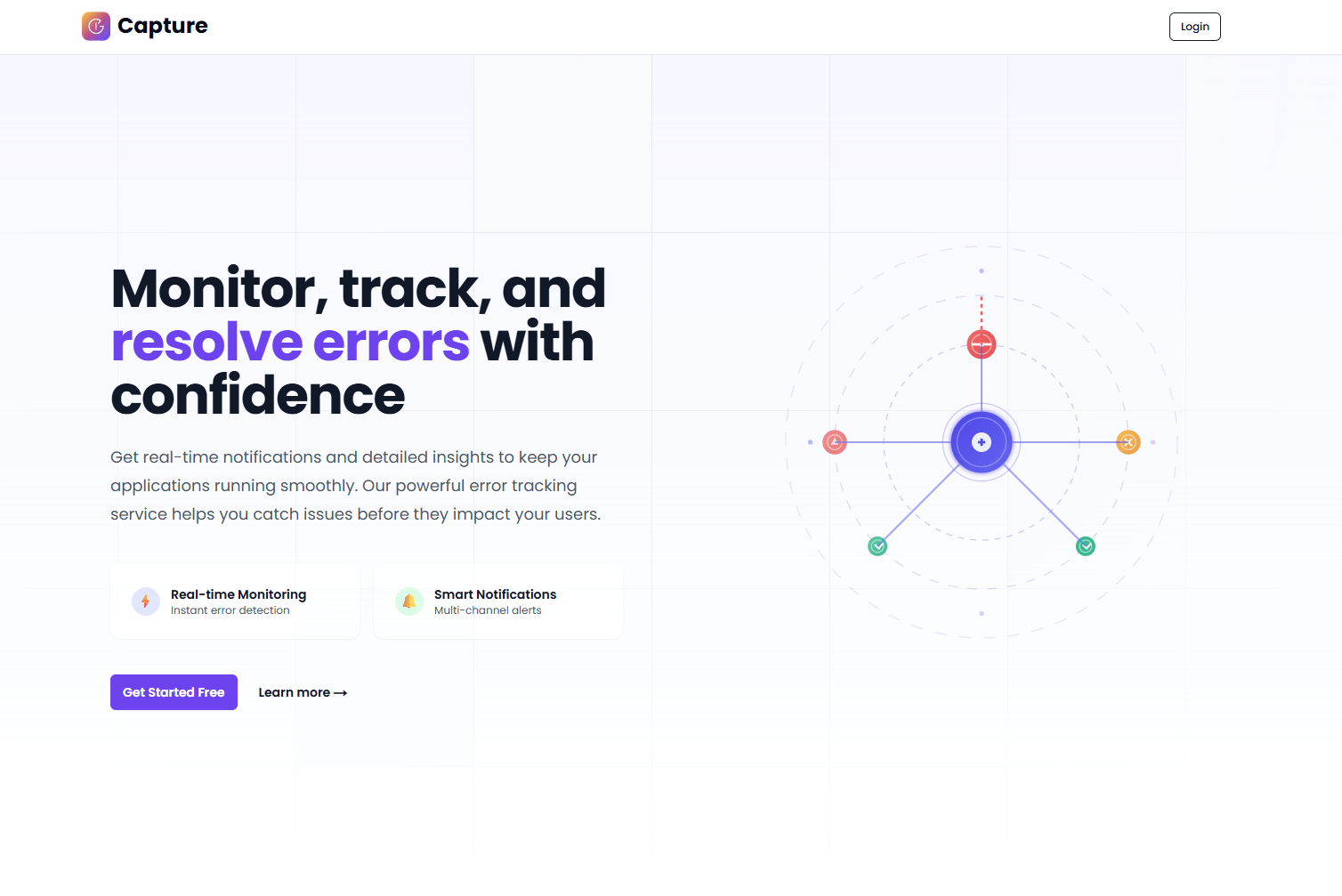Creating A Data Culture Using Power BI

What You’ll Learn From This Episode
- Brian shares how his interest in data science started, and how “everything you see in the world is governed by a data generating process.”
- How Sam made the shift from the finance industry to data science
- Sam and Brian discuss how data science tools have become more accessible now than they used to before
- How Brian got involved in the Enterprise DNA community, and how it became a tremendous learning experience for him
- The power of an online community
- Brian talks about the data culture initiatives in his organization
“If your current tools don’t meet people’s needs, the smart people are going to build their own solutions to do their jobs well.”
- Understanding the self-service structure of Power BI
- How long it took Brian to successfully implement an analytics tool in his company
- How Microsoft has “democratized” advanced analytics through the Power BI platform
- The struggles Brian experienced that slowed down the implementation of Power BI in his team
“Before you attribute something as a DAX problem, make sure your data model is set up correctly.”
- Brian's grand vision for the future with regards to the implementation of Power BI
“With Power BI every month feels like Christmas, where you get a new release and you don’t know what’s inside that release.”
- The long-term impact of Power BI on users
- Power BI is going to fundamentally change what people do during their day, where time-consuming repetitive tasks that take up a significant chunk of time will be lessened
- How you can build up your own analytic mind and grow your analytical skills
- The 5 strategies to improve one’s DAX toolbox through structured practice
Key Takeaways
Why Every Analyst Should Join a Community
Sam McKay: Let's give the listeners a background on how we got connected.
Brian Julius: The forum was my first entry into the Power BI community. I remember working on my first project and watching your excellent YouTube content, and then getting stuck. I had a measure I couldn't get to work so I posted it on the forum. This was back in the day when you were answering pretty much all the forum questions. I still get back to that first post occasionally, where you provided a great solution that served as the cornerstone of a report that I still use every day. From that point, I got engaged in the forum and read it voraciously, and then started to offer solutions.Some of the solutions I provided were good, some of them were not. But even the ones that were not good, people would build on it to get to the correct answer. If you look at any post, there are 2 or 3 members and experts building on each other's solutions to create a better outcome. This is as much a learning experience for me as it is for the people posting questions. So it's a two-way exchange.
What To Expect From The Enterprise DNA Community
Sam McKay: One thing that continues to amaze me to this day is the power of an online community. It's something that is really hard to create, but once you create it, it becomes an incredible asset. This is not just Enterprise DNA-specific, but in general. It's amazing what the internet and a digital community can create quickly and sustainably.For example, we were able to build the Power BI Challenges on top of our online community. This wouldn't have been possible without the strong assets that we have within the community beforehand. It's exciting what other things can evolve from our community going forward. I've sometimes referred to our community as the global mind of Enterprise DNA. Ultimately, our goal is to reach fellow data-minded enthusiasts all over the world.
Brian Julius: Yes, I totally agree. Another benefit to joining a data community is the ability to tap into the expertise of people all around the world 24/7. You'll have a problem and somebody in India, Australia, Netherlands, London, and Florida will contribute and work together. This is a remarkable thing that not long ago would have been science fiction. You can see it on the challenges which draw everybody together working towards a common problem. It's fascinating to see the diversity of thought in a community where 10 people will have 10 different analytical approaches. The way people break down problems differently is both incredibly instructive and fascinating to me.
Data Culture Initiatives
Sam McKay: You mentioned earlier about the evaluation stage of an analytics tool like Power BI or the Power Platform. How did the organization came to a point where they decided that this is the tool for them? What are the decision process and considerations that your team and organization had?
Brian Julius: That's a good question. I think we looked for solutions that were scalable. We were looking for something that didn't rely on esoteric custom development and will be tied to one person's knowledge. One of the things about Power Platform is that it has Office 365, Excel, Word, and PowerPoint. We looked for something that allowed us to take advantage of what folks were already doing, and to build solutions that give a range of flexibility and are easy for users to implement. We also recognized we have a lot of smart folks from different areas that have the capability and interest to do their own analysis.
Excel Debt Service
Somebody mentioned the term Excel debt service to me, and it is one of the challenges in data culture these days. It captures a lot of what our struggle has been over the years. If you have tools that don't meet people's needs, then smart people are going to build things on their own to do their jobs well.
Brian Julius: And the tool that everybody has on their desk is Excel. What we found out is that if the tools aren't meeting the needs, then people will build their own solutions in Excel. All of a sudden, you have this proliferation of Excel worksheets or Google Sheets that people have built. Unfortunately, these aren't well-coordinated and they don't talk to each other, so you have fragmented data all over the organization.What we've been trying to do with Power BI and Power Platform is to put all of those together by not taking the control away from the individual, but giving it to users in a way that makes the data they need accessible and breaks it down into silos. So instead of everybody having bits and pieces of data on their local drive, they have it synthesized together in a thoughtful, accessible, and queryable way.Power BI gave us this capability. With a little bit of training, users instinctively knew how to use a good Power BI report that we get very little support requests. People were able to get what they need, and it resulted into a good feedback loop as well. Instead of generating their own Excel sheets, they'll come back to us and say, "Hey, this is great. But it would be even better if it could do x." We then modify the report or create a new report to accommodate the feedback. This feedback loop built the data culture together in a way that we haven't seen before, and we're just getting started. I think getting away from the individual Excel debt service is a big part of that.
Self-service Vs Centralization In Data Analytics
Sam McKay: Are you still a believer in the self-service structure? Or are you on a centralized team and then making only minor adjustments at the self-service level?
Brian Julius: I don't think we're far along in the implementation to know exactly how it's going to shape up. We have a relatively small number of people who know how to develop reports and manage data within the platform. But we're branching out and getting more people up to speed. And so, at this point, it's fairly centralized, but not in a way that feels restrictive to people.The tool itself has evolved, and perspectives have been incorporated. I see this as a good center point on which to pivot centralization versus self-service. You can create reports and analysis that are fairly centralized, but will still give a lot of flexibility for the user to customize. I think that this, eventually, is going to be the right balance for us.
Sam McKay: The self-service aspect is one of the huge promises that is being heavily marketed not only by Power BI, but other tools like Tableau and QlikView. But I think that leaving everyone to their own devices, in a self-service way, does throw up a lot of dangers. You need a strong central authority on things like data access, consistency around report building, best practice implementation, and general governance. It sounds to me like you're on your way to building a more centralized operation to unleash the tool more widely across business users.
Brian Julius: Your point about governance is extremely well taken. We're settling into a pretty good framework where all the different players at the table are in a consensus on governance practices, even down to the level of individual settings in the Power BI administration. We make sure that nobody's going to make a change that will break other people's reports.But from the self-service standpoint, one huge benefit is eliminating the repetitive processes that suck up so much time. For example, our finance team runs these monthly reports through a centralized financial system, but then a lot of the data manipulation is being done in Excel every month. It's a fairly manual process. We're really excited about the potential for automating this process where you pull the data from the central system not just in a pivot table way, but taking advantage of the visualization and dynamic capabilities of Power BI. We can provide those reports in an automated way so that managers can just come in the morning and have the newest data available to them without having to go to the finance team, which will then run a separate report. The automation frees up those teams to do the creative and analytical thinking instead of running repetitive reports over and over again. This creates the space within the organization for real innovation and creativity.
How Microsoft Has “Democratized” Analytics
Sam McKay: I think that a lot of analysts within organizations already know about this. We're all preaching to the converted. But what about getting senior level managers and executives to completely buy into an analytics tool to increase the productivity around data? How did you make that happen?
Brian Julius: Well, that's a big question to unpack. I've been fortunate in my own experience that the managers that I report to are scientists and analysts by training. They quickly got the concept of what we were trying to do. We had to convince people, particularly from the IT side, that it meets security requirements and provides benefits beyond the tools that we're already using. Anytime you introduce a new tool, there will be training required for the people who support it, and the people who implement it.It has been a process of working with the stakeholders and understanding their concerns. The approach sells by itself, and I always look forward to the demos that I do to people who have never seen Power BI before. Even a fairly basic Power BI report looks miraculous to somebody who spent the last years buried in Excel and other tools. They are amazed at the things you can do at the user level and the insights you can extract. Every time I've demoed these reports, people are floored by what it can do relative to the tools that they're used to. It creates a curiosity and a willingness to have the discussion.For me, one of the biggest hurdles has been answering the question of who else can do this? How transferable is this knowledge? Is this something that a lot of people know? This is why we've brought in more people up to speed on Power BI development to show that it's a manageable learning curve. We have people on the IT team, finance team, and other disciplines that are getting good at this. I think that of itself is a huge selling point. You don't have to contract an expert developer to make changes or to build new reports. Much of the development can be done in-house.
Sam McKay: Microsoft says that a lot. I hesitate to use buzzwords, but they like to describe it as "democratizing"; analytics but in reality, that's what they have done with the Power BI platform. You can do things in Power BI, a tool that costs you hardly anything, and it can be free if you want it to be. You can do things that probably cost you tens of thousands of dollars to achieve only five years ago.Generally, you can get buy in quickly through prototyping. Just do some initial prototyping and get that in front of users. It can get the ball rolling pretty quickly because if users can see the value, then those requirements can flow up to the other support teams, to make sure that the data is available and the security is set up correctly.
Brian Julius: Well, I get your point about democratization. I've seen this in our expert team where there's not one software developer. We have a couple of Chartered Financial accountants, an engineer, a logistics specialist, and myself as an economist. It's fascinating to me that these folks are also tremendously skilled developers. Power BI can be learned by anybody with a good analytics background; it's not limited to developers. In fact, we don't have a single developer among us. I think that is a huge advantage in an organization where the people with the business knowledge are also driving the tool development process. They get to make it responsive to the needs of the business users.
Struggles That Slowed Down Brian When It Comes to Data Culture in His Team and Organization
Brian Julius: It's been a learning process for me in project management in terms of developing a large scale complex application. The smaller project reports we've done have gone relatively smoothly and easily. But when you're talking about a big complex project that draws large data from a wide array of sources, you need governance across multiple components of the agency, and learn the nooks and crannies as a business user. This has been a challenge for us. Bringing in outside expertise has been valuable to help us get to the finish line when building a large scale app.You can build what you think your users need, but how do you know that really is what they need? We've learned to involve the users right from the get go. This has been a big lesson for us because early on, we thought we knew what they needed. We did a lot of interaction with the users to really understand what they are doing. Whenever you come in with a new tool, you have to be careful not to break the things that are working well. We had to understand where the strengths are, as well as the weaknesses. That's probably one of the biggest lessons: how to bring a diverse array of users into the process.
Sam McKay: So have you engaged external parties to help with that? Or have you been managing this within your own team?
Brian Julius: We have brought in experts because we recognize the limits of what we know, and also wanted to leverage the experience of folks who've done this for years.
Sam McKay: Right. Is this in the database or in the infrastructure side? To make sure that the different data sets that stem from different business areas are set up correctly?
Brian Julius: Yes. And it's really interesting how in the forum we always say that before you attribute something as a DAX problem, you need to make sure that your data model is in good shape. That was our challenge so we spent weeks structuring and polishing that data model. We spent a lot of time with consultants and with our internal experts to put together a powerful data model that would support the analysis we want to do.I think having a clear picture of what questions you want to answer from the outset is key. We need something that can answer these questions in a simple and effective way. We built a model that answers those questions, but also provides us flexibility for the future questions we think people will ask once they see what the system can do. Once we got that data model working smoothly, the report development and the subsequent work just fell into place.A mistake I made early on is asking the stakeholders questions like, "What reports do you want out of the system?" In retrospect, that didn't work well, because for folks who were used to Excel and haven't worked in this kind of platform before, you're asking them a question they don't have the experience to answer. They have no foundation on which to answer that question. So the answer that comes back is something that looks like a pivot table.So what we've done since then is to not focus on what the report looks like, but what are the questions you want answered? Getting a deep understanding of the questions is important before you go into data modeling or start writing DAX or Power Query.
The Future Of Data Analytics
Sam McKay: What's your vision three to five years from now? How different do you think things will look at that point in time to where they are right now?
Brian Julius: I think in the future, we've developed a better understanding of the service. We'll be learning the ins and outs of the services, the data flows, and shared data sets. We'll learn how to share and leverage data resources across the organization.So instead of each group developing Power BI reports on their own, we can put them through things like data flows or authoritative data sources up in the cloud. This way, we can avoid a lot of the inefficiency that comes from each group having to derive the same group of base data sets. This is where I see things going.Another part of it remains unknown. One of the things I love about Power BI is every month feels like Christmas, where you get a new release and you never know exactly the direction that Microsoft is going to take this. Some months, when you open the box, you'll see things that you weren't expecting that have huge implications.
Sam McKay: I know. The rapid improvement that Microsoft is giving this program is quite phenomenal. Power BI was very transformational when it was re-released four or five years ago. But some of the additions that they've made from the querying side, the development side, the distribution side, and the online service have been amazing. In my view, they've started with an amazing tool and made it even more incredible.
The Impact of Power BI on Users' Day to Day Activities
Brian Julius: I think it's going to fundamentally change the makeup of what people do during their day. Right now, all of us have these time-consuming repetitive tasks that take up a significant chunk of time. So the ability to run a report at your desktop in 15 seconds, that would normally take a team of two or three people half a day, is enormous. These people can focus on their expertise and skill set. You'll no longer have high level people just mindlessly cranking out reports. This opens up tremendous possibilities to move the organization forward.I remember when my dad was a corporate manager in the pharmaceutical industry. And I remember him sitting at the dining room table doing divisional budgets, and he'd have these huge sheets of graph paper. I remember when the first spreadsheets came out, and he was like a caveman seeing fire for the first time. And it's just interesting that 30 years later, I would have that same experience as I looked at Power BI and thought, "This is going to change the way the world works."There's also the availability of tools. There was a really interesting Power BI Challenge based on a JIRA data set where one of the participants, Brad Smith, applied some remarkable machine learning techniques. These techniques are now available to people in ways that they have never been historically. There's still a fair amount of knowledge required to apply that properly. But that threshold is far below than what it was a few years ago. And as the tool develops, the people's understanding of how to use these tools also advances. The custom visuals, machine learning, Python, and all the different things they're bringing into the tool are just incredible.
Sam McKay: The way I look at it is that it's upon us to democratize the knowledge required for even an Excel user to do machine learning and to do advanced analytics. That's what we need to be doing and how we need to evolve the content we provide. And as that advanced analytics functionality gets more embedded into Power BI, I want us to be right there making sure that we're empowering all of our users to be able to do that kind of analysis. This is certainly the direction that I want to go to as well.
Improving Your Analytical Mind
Sam McKay: A good question to end on is what do you think are some of the activities that individuals can do to build up their own analytic minds, and grow their own analytic capabilities?
Brian Julius: I've put together a video on five ways to improve your DAX toolbox. The technique I'm talking about in the video is called structured practice. I think Enterprise DNA's video and blog content provide a great foundation of understanding, but it's not until you start doing it yourself that it really clicks. This structured practice has been done by surgeons, ballet dancers, and athletes. You need to have a structured practice that is repetitive and continually challenges yourself slightly but not dramatically beyond your existing capabilities.And for me, I think the two things that have been instrumental are the forum and the data challenges. These are great places to start. But really, you need to dig in and get a data set that you are passionate about. Diving into your own data on a regular basis and building up the skills are the only way to grow. I think teaching from the experts is great, and they introduce you to new techniques. But it's only through working the problem on your own that you build the understanding. It seems so simple when you watch somebody else, but there's no substitute for digging in yourself.
About The Show
The Analytic Mind is your guide to navigating the evolving frontier of data, AI, & intelligent business.
Hosted by Sam McKay, CEO of EnterpriseDNA, this show dives into real-world use cases, technical strategies, and the mental models behind smart decision-making.
Each episode challenges you to move beyond tools to think critically, act strategically, and build with impact.
Whether you're refining your analytics skills or shaping your organization's data vision, this is where insight meets execution.
Stay sharp. Stay ahead. Think like an analytic mind.

